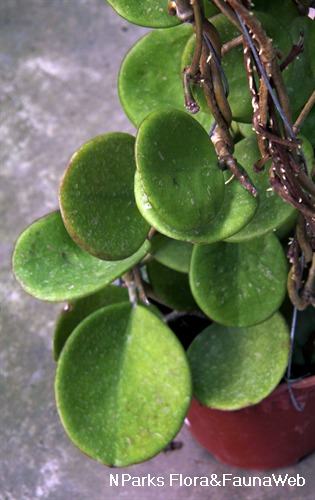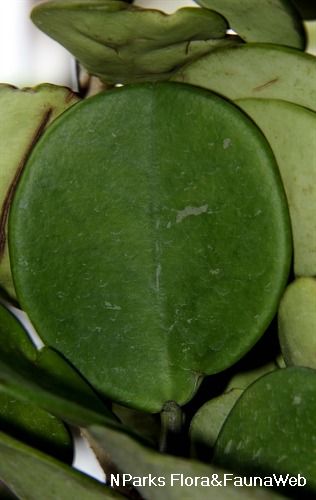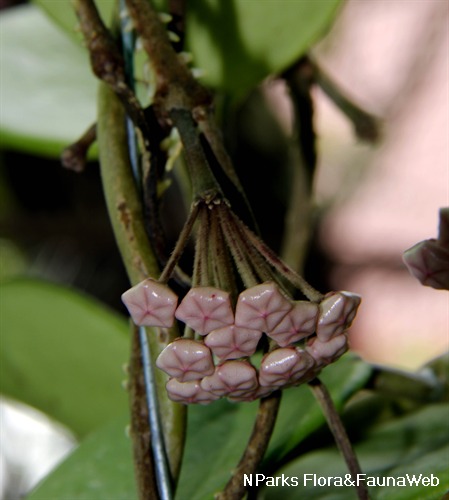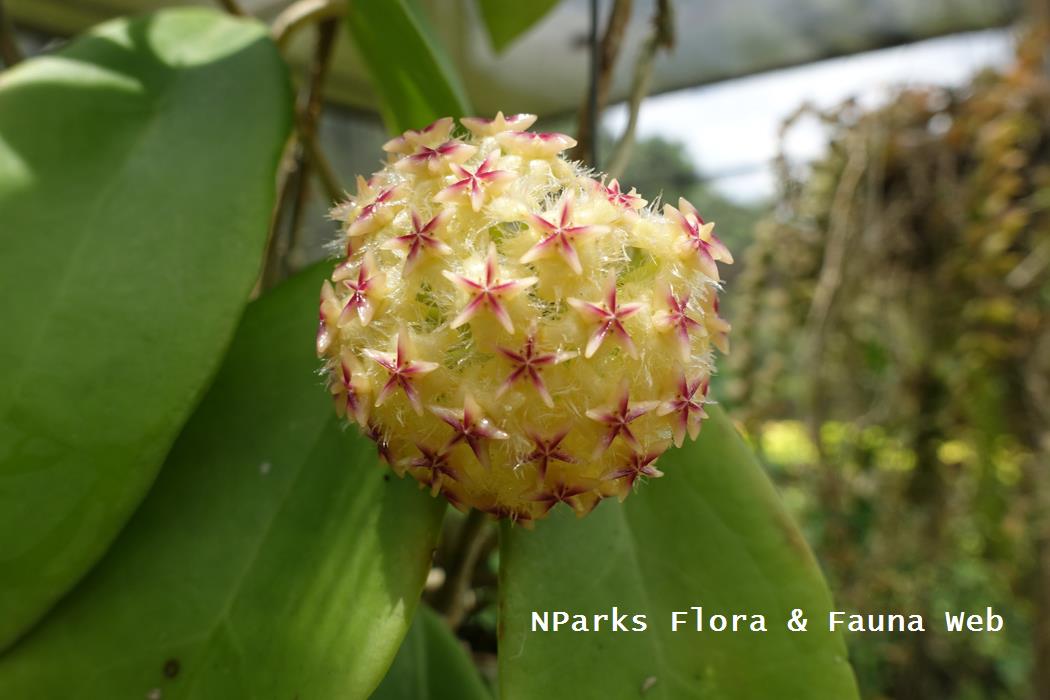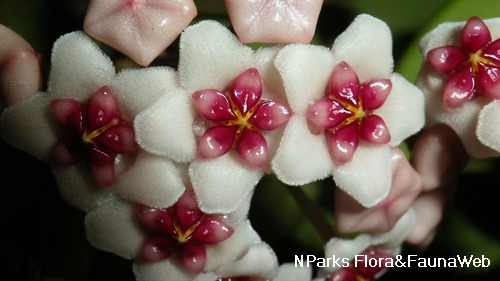
Name
Classifications and Characteristics
| Plant Growth Form | Climber |
|---|
Biogeography
| Native Habitat | Terrestrial |
|---|---|
| Preferred Climate Zone | Tropical |
Description and Ethnobotany
| Growth Form | Robust vine with thick leathery leaves |
|---|---|
| Foliage | Leaves obovate, thick leathery, to 8cm long by 7cm wide. Upper surface mid-dark green, often with dull greyish silver flecks or markings, under surface of leaves light green. |
| Flowers | Flowers to 1cm across when fully opened. Corolla white, occasionally tinged with pale pink, densely hairy, reflexed when in full bloom. Corona dull pink, tinged rose red towards the centre. Flowers are fragrant and the scent is not unlike that of another Hoya species, Hoya lacunosa. |
| Etymology | The specific epithet 'obovata' of this species refers to the shape of the leaves (obovate) |
Landscaping Features
| Desirable Plant Features | Ornamental Flowers, Ornamental Foliage |
|---|---|
| Landscape Uses | Small Gardens, Vertical Greenery / Green Wall, Skyrise / Balcony, Container Planting, Suitable for Hanging Baskets |
| Usage Hazard - Cons Remarks | Avoid contact with milky/ white sap as it may cause skin irritation in certain individuals. Keep plants away from children and pets as sap could be toxic. |
Fauna, Pollination and Dispersal
| Pollination Method(s) | Biotic (Fauna) |
|---|
Plant Care and Propagation
| Light Preference | Semi-Shade |
|---|---|
| Water Preference | Moderate Water |
| Rootzone Tolerance | Moist Soils, Well-Drained Soils, Easy to Grow |
| Pest(s) | Sucking Insects |
| Propagation Method | Stem Cutting |
Foliar
| Foliage Retention | Evergreen |
|---|---|
| Mature Foliage Colour(s) | Green, Silver / Grey |
| Mature Foliage Texture(s) | Leathery, Thick |
Floral (Angiosperm)
| Flower Colour(s) | Pink, Red, White |
|---|---|
| Flower Texture(s) | Velvety / Furry / Tomentose |
| Flower Grouping | Cluster / Inflorescence |
Image Repository
Others
| Master ID | 31498 |
|---|---|
| Species ID | 5895 |
| Flora Disclaimer | The information in this website has been compiled from reliable sources, such as reference works on medicinal plants. It is not a substitute for medical advice or treatment and NParks does not purport to provide any medical advice. Readers should always consult his/her physician before using or consuming a plant for medicinal purposes. |

